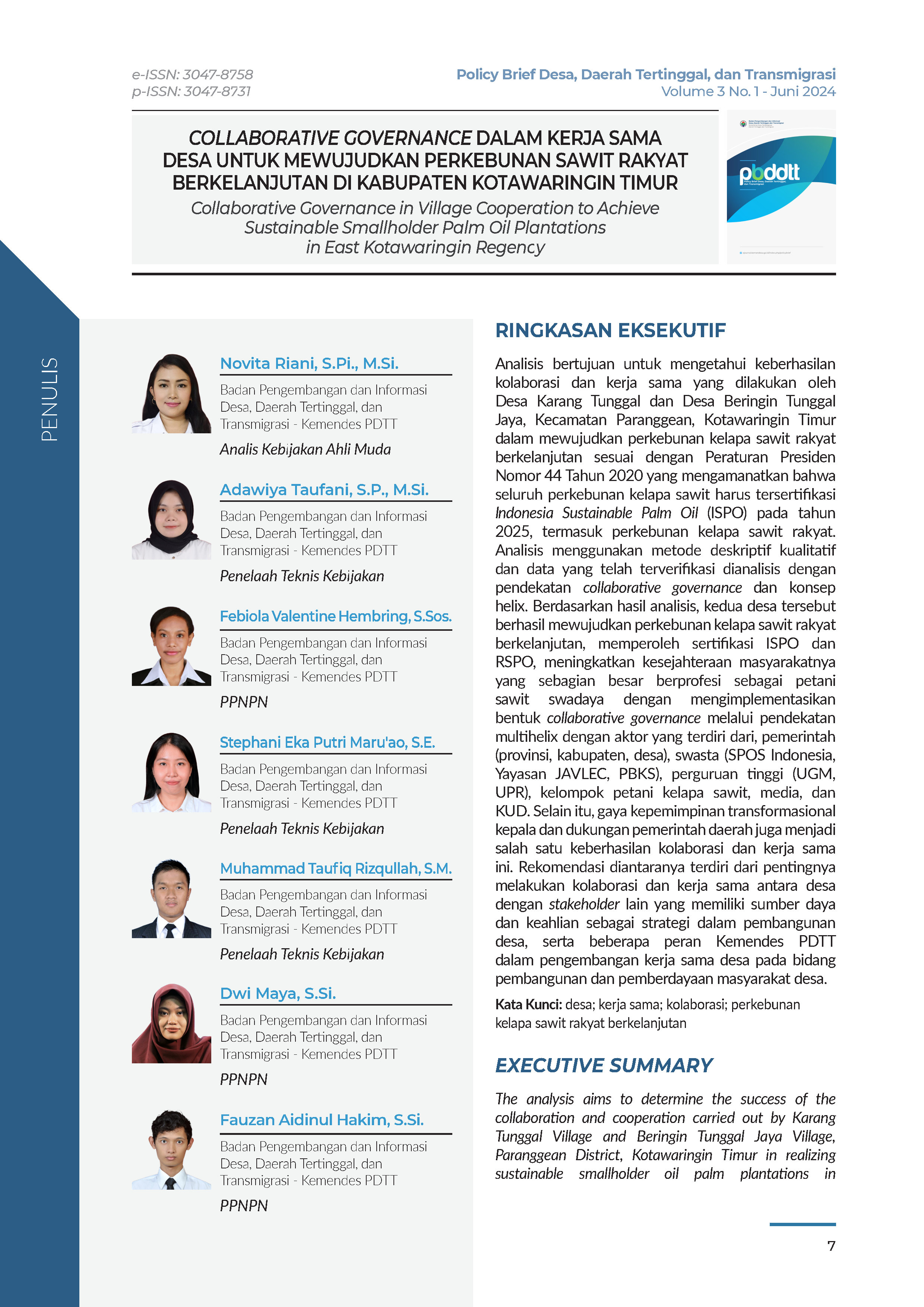Collaborative Governance in Village Cooperation to Achieve Sustainable Smallholder Palm Oil Plantations in East Kotawaringin Regency
Keywords:
collaboration, cooperation, sustainable smallholder oil palm plantationsAbstract
The analysis aims to determine the success of the collaboration and cooperation carried out by Karang Tunggal Village and Beringin Tunggal Jaya Village, Paranggean District, Kotawaringin Timur in realizing sustainable smallholder oil palm plantations in accordance with Presidential Regulation Number 44 of 2020, which mandates that all oil palm plantations must be certified by the Indonesia Sustainable Palm Oil (ISPO) by 2025, including smallholder oil palm plantations. The analysis uses a qualitative descriptive method, and the verified data is analyzed using a collaborative governance approach and the helix concept. Based on the analysis results, the two villages succeeded in realizing sustainable smallholder oil palm plantations, obtaining ISPO and RSPO certifications, and improving the welfare of their communities, most of whom are independent oil palm farmers, by implementing a form of collaborative governance through a multi-helix approach with actors consisting of the government (provincial, district, village), private sector (SPOS Indonesia, JAVLEC Foundation, PBKS), universities (UGM, UPR), oil palm farmer groups, media, and cooperatives (KUD). Additionally, the transformational leadership style of the village heads and the support of the local government also contributed to the success of this collaboration and cooperation. Recommendations include the importance of collaboration and cooperation between villages and other stakeholders who have resources and expertise as a strategy in village development, as well as several roles of the Ministry of Villages, Development of Disadvantaged Regions, and Transmigration (Kemendes PDTT) in developing village cooperation in the field of village development and community empowerment.
Downloads


